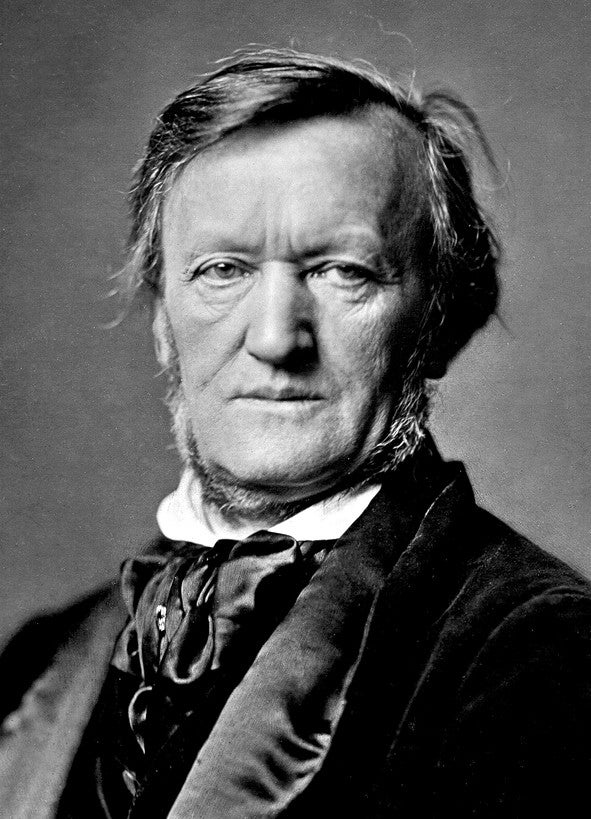In his autobiography My Life, Richard Wagner wrote extensively about his early efforts to survive as a composer. In 1841 he and his wife, Minna, were living in the Paris suburb of Meudon and having a hard time of it.
“Our lack of funds began to make itself felt with a severity that was very discouraging. We felt it all the more keenly when my sister Cecilia and her husband moved to a place quite near us. They weren’t wealthy, but they were fairly well to do. They came to see us every day, but we never wanted to let them know how terribly hard up we were
“One day it all came to a head. Being absolutely without money, I started out early in the morning to walk to Paris. I walked because I didn’t have enough money for the railway fare. And I made up my mind to wander around all day, trudging from street to street on into the late afternoon, in the hope of raising a five-franc piece. But my mission proved utterly fruitless, and I had to walk all the way back to Meudon again.
“Minna came to meet me, and when I told her of my failure, she informed me that one of our friends had returned so hungry that she had had to give him the last of the bread. Finally our lodger also returned, soaked with perspiration and exhausted, driven home by the craving for a meal, which he had been unable to get in town. He begged most piteously for a piece of bread.
“That outcome inspired my wife with heroic resolve because she felt it her duty to
appease at least the hunger of her menfolk. For the first time during her stay on French soil, she persuaded the baker, the butcher, and the wine-merchant, by plausible arguments, to supply her with life’s necessities without immediate cash payment, and Minna’s eyes beamed when, an hour later, she was able to put before us an excellent meal.
Stay informed on the latest news
Sign up for WPR’s email newsletter.
Wisconsin Public Radio, © Copyright 2024, Board of Regents of the University of Wisconsin System and Wisconsin Educational Communications Board.






